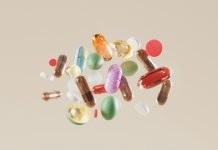
In a recent study, it was discovered that having breakfast after 9 a.m. can increase your risk of getting type 2 diabetes by 59%.
This is in comparison to people who have their breakfast before 8 a.m.
More than 100,000 participants in France were followed in this study, and it showed that changing when we eat can also affect our risk of diabetes, not just what we eat.
Understanding Type 2 Diabetes: Lifestyle Factors
Type 2 diabetes is a health condition that’s often linked to choices we make in our lives, like eating unhealthy food, not being active, and smoking.
However, this study, which was published in the International Journal of Epidemiology, suggests that when we eat could also play a part in it.
“We know that when we eat can affect our body’s daily rhythms and how well it controls sugar and fats.
But, not many studies have looked at how meal timing or fasting might be related to type 2 diabetes,” says Anna Palomar-Cros, a researcher at ISGlobal, and the lead author of the study.
The Research Process: Examining Meal Times
In this study, researchers from ISGlobal and INSERM in France tracked the eating habits and health of 103,312 adults in France.
The participants shared what they ate and drank in a day, along with the timing of their meals. This was done online, three times on non-consecutive days.
The researchers then looked at the average eating habits in the first two years and the participants’ health over the next seven years on average.
The Findings: Late Breakfast, Higher Risk
During the study, 963 people got type 2 diabetes. The risk was much higher in those who regularly ate breakfast after 9 a.m., compared to those who ate before 8 a.m.
“Biologically, this is not surprising. We know that missing breakfast can impact how well the body controls sugar and fats, and how much insulin it makes,” explains Palomar-Cros.
“Two past studies that combined the results of many others found that skipping breakfast can increase the risk of type 2 diabetes.”
The research team also discovered that having dinner late (after 10 p.m.) seemed to raise the risk of getting diabetes while eating more times (about five times a day) appeared to lower it.
In contrast, fasting for longer was only beneficial when people had an early breakfast and an early dinner.
The Conclusion: Early Eating, Lower Risk
“Our results suggest that eating your first meal before 8 a.m. and your last meal before 7 p.m. may help lower your chance of getting type 2 diabetes,” says Manolis Kogevinas, a researcher at ISGlobal, and a co-author of the study.
This is similar to what the same team found in a past study about the link between an early dinner and a lower risk of breast or prostate cancer.
Overall, these results strengthen the idea that when we eat, in line with our body’s daily rhythms, can affect our health.
This could be used to help prevent type 2 diabetes and other long-term health conditions. This is known as chrononutrition – the study of how diet, body rhythms, and health are linked.
If you care about diabetes, please read studies about Vitamin D and type 2 diabetes, and what you need to know about avocado and type 2 diabetes.
For more information about diabetes, please see recent studies about How to eat to prevent type 2 diabetes and 5 vitamins that may prevent complications in diabetes.
The study was published in the International Journal of Epidemiology.
Follow us on Twitter for more articles about this topic.
Copyright © 2023 Knowridge Science Report. All rights reserved.



